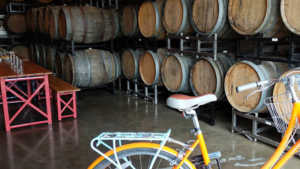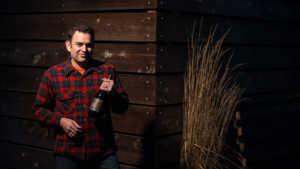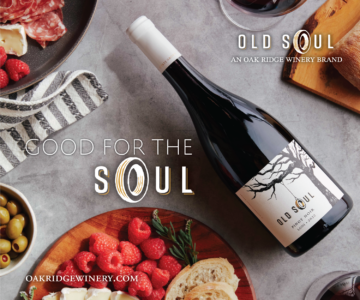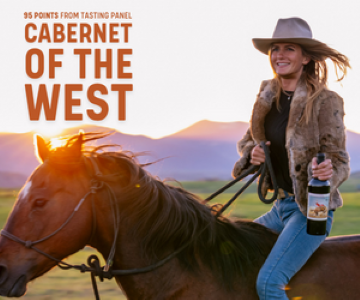A Look at The Urban Wine Explosion in Portland, OR.
by Albert Letizia
I spent time in Portland, Oregon recently and I was impressed by the thriving urban winemaking scene there. It’s a lo-fi, DIY, close-knit community of hip producers operating in shared spaces, cooperatives, and converted warehouses. They source fruit from Pacific Northwest vineyards, make wine in town, and foster a unique wine culture that you can bike, bus, Uber, or even walk to, to sample their juice. And some of these producers are getting national attention, not only by the wine press and critics, but by sommeliers as well.
In addition to wine, Portlandians also take their coffee, food, and beer very seriously. Portland breweries played such a prominent role in the microbrewery revolution in the United States that it is sometimes dubbed “Beertown” or “Beervana.” Now it seems that Portland might become synonymous with high-quality wine production as well.
So just what makes Portland’s urban wine scene so successful? A big part of it is its proximity to Willamette Valley.
Portland is only 30 minutes from the Chehalem Mountains AVA and 45 minutes from the Dundee Hills AVA. Transporting grapes can be considered a potential quality issue for urban wineries, but since Portland is located so near to some of the greatest vineyards in Willamette Valley, there is little threat in the transportation process. And since owning land is expensive and, simply put, just not economically feasible for everyone, a lot of winemakers start by purchasing fruit, rather than trying to purchase or rent land to grow on.

Kate Norris and Tom Monroe own The Southeast Wine Collective, an incubator for new wine brands and a custom crush facility for people looking to make wine in a collective space. They’re juggling 12 different winemakers, bringing in 20 different varietals, and have turned out 11,000 cases of wine.
When asked how she and Monroe got the inspiration for the collective, Norris said, “Tom and I made wine in Beaujolais and Burgundy and the wineries are all centralized in the villages. There are some that have their own domains on the vineyard, but very few. And then we thought: ‘Portland is just a big village, right?’ And our vineyards are very close.”
Norris and Monroe also make their own wine at the collective called Division Wines. She recalls, “When we first started making wine in town, people were very confused. We’d get lots of questions like: Do you make wine in a bathtub? Or a garage? Or in a basement? So we had to prove that we could make really good wine in Portland.” She then went on to add, “We really don’t have to answer those questions anymore. And it’s a tribute to everyone who’s making really good wine here.”
So it would seem that it’s Portlandians’ creativity and collaborative nature that drives the wine scene and makes it thrive.
Barnaby Tuttle has worked as an ironworker, labored in a wrecking yard, turned tables as a server, and eventually become a wine buyer. It was while working in the latter career that he fell in love with Riesling and became determined to make wine. He has since dedicated his life to winemaking and now owns Teutonic Wine Company in Southeast Portland, where he makes meticulously-crafted, precise wines from German and Alsatian varietals.
Tuttle’s Willamette Valley Riesling was included in Eric Asimov’s, New York Times 2018 story, “3 American Rieslings to Drink Right Now,” which further solidified Portland as a quality wine producing area.

When I asked Tuttle what he thinks made Portland wine successful, he said, “For the most part we’re all very supportive of one another. Never have I come across any kind of resentfulness. Everyone is pushing each other further and further out. We call each other for help. It’s cooperative. It’s like a good music scene.” Did I mention that Tuttle was in a punk band earlier in his career?
“So many of these guys are from the old music scene in Portland and now they’re in food and wine because there’s this artisan aspect to it. The wine scene here is kinda like the new music scene.” Then he added, “I may be biased a little bit because these are my close friends. But most of the wines I taste are really very good.”
Matt Berson owns the Love and Squalor label. He’s another skilled winemaker who has gotten national recognition. He previously made his wines in wine country, but now, after many years, decided to abandon his facility in Willamette Valley and is in the process of building a winery and tasting room in the city.
Berson sang praises of his hometown: “Portland was really the first successful market for Love and Squalor. It’s my hometown so I got huge support early on from retail and restaurants there. Now I’m in 11 states, but Portland is my core. Even if all those other states were to dry up, I’d still have Portland.”
That was the one common thread that Norris, Monroe, Tuttle, and Berson all expressed about the key to Portland’s success as a wine producing area. They seemed to point to the people and the community and their love of all things local, all things artisan, and all things Portland.
“They not only have the love but they’re willing to support with their dollars the things they cherish and the things that they’re proud of,” Norris said warmly and with gratitude.
Along with Division Wines, Teutonic, and Love and Squalor, here are some other Portland producers to look for:
Seven Bridges Winery specializing in Cabernets from Washington State.
Bow and Arrow specializing in Loire Valley varietals growing in Willamette.
Fausse Piste specializing in Rhone varietals from across the Pacific Northwest.
Libertine specializing in Rieslings.
Loop de Loop focusing on Burgundy varietals.


